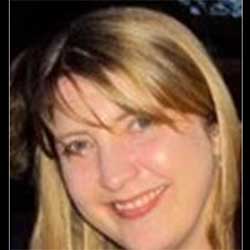About
Alexia teaches English Language, Literature and Film at different levels and on different programmes within the School of Culture and Communication.
Alexia’s research interests lie in genre film (particularly science fiction film, Gothic/Horror film, film noir and romantic comedy), feminism(s) particularly postfeminism, female film directors and representations of women in film, as well as adaptation.
Alexia is also interested in pedagogic practices, particularly experiential learning in which taking students out of the traditional classroom space, connects learning with the external environment, and aligns theory with praxis.
Most recently, Alexia co-edited Refocus: The Films of Jane Campion (Edinburgh University Press, 2023) with Adele Jones (Swansea), and is author of several articles / chapters on the films of Jane Campion. Alexia has previously published on trends in romantic comedy and science fiction film. She was co-editor of ‘Adapting the Nineteenth Century’ (2010) a special edition of the Journal of Neo-Victorian Studies on adaptation with Dr Jessica Cox (Brunel).


